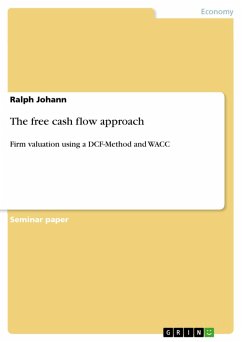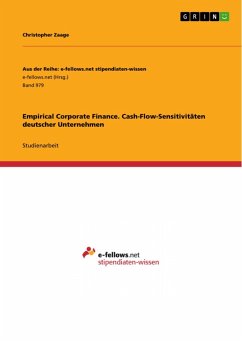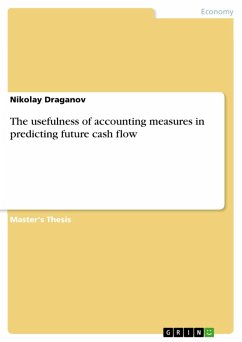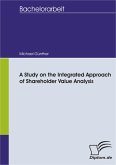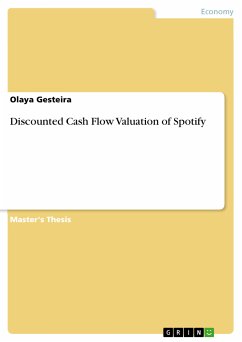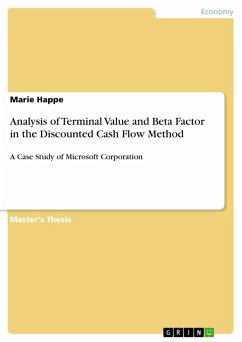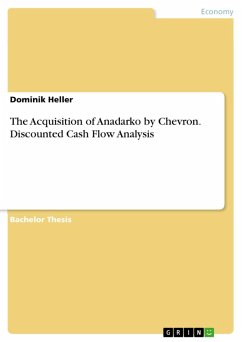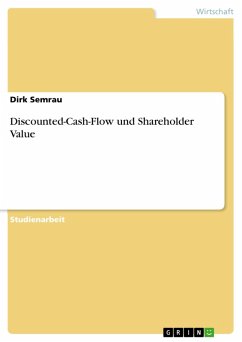Seminar paper from the year 2005 in the subject Business economics - General, grade: 1.3, California State University, Fullerton, course: Theory of Corporate Finance, language: English, abstract: This paper will deal with the procedure and implementations of firm/stock valuation using FCF approach and WACC - the weighted average cost of capital. On the road, the different approaches and methods of firm valuation, the various inputs of WACC and the final procedure finding the fair market value of the firm using Pro Forma Financial Statements, will be discussed. In this valuation method the two main parts contributing to the final value of the firm are Free Cash Flows (FCF) and the weighted average cost of capital. It is then used the time value of money concept along with some educated guesses about the long term sales growth rate and the long term WACC to apply common capital budgeting rules of project evaluation. Besides that, the paper will shortly discuss the influence of capital structure on a firm's value. It will come out that there is a difference in value whether the company is leveraged and uses debt or not. When it comes to the different inputs of the WACC, a main focus will be on the required rate of return for shareholders. Finding the 'right' beta and an appropriate estimate for the market risk premium are the main issues of that part. Therefore, the CAPM model and its specific determinants will be analyzed. Thereafter, the nature of pro forma financial statements and the different parts of them will be defined. It will be described how the 'free cash flows' are determined and how that leads to the actual valuation procedure. Finally, the paper will focus on the terminal value as probably the most important and affecting part of the calculated firm value and its nature as a perpetuity in an investing perspective. The conclusion will finally deal with a critical assessment of the firm valuation process with the FCF method.
Dieser Download kann aus rechtlichen Gründen nur mit Rechnungsadresse in A, B, BG, CY, CZ, D, DK, EW, E, FIN, F, GR, HR, H, IRL, I, LT, L, LR, M, NL, PL, P, R, S, SLO, SK ausgeliefert werden.

